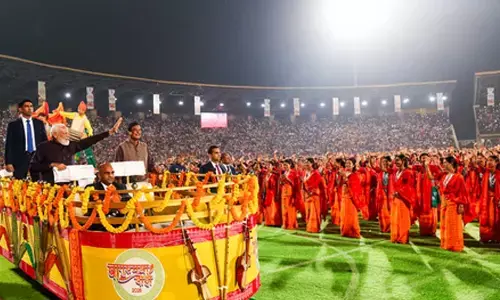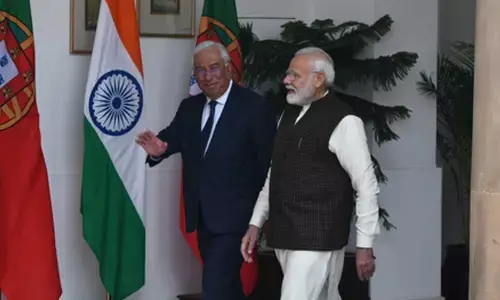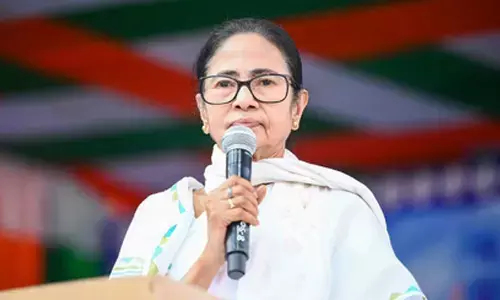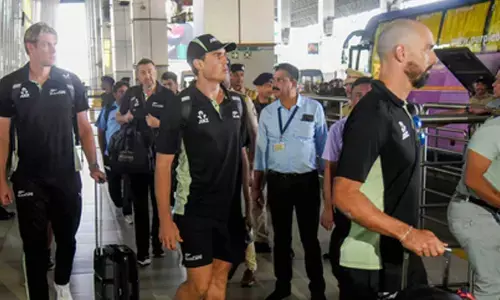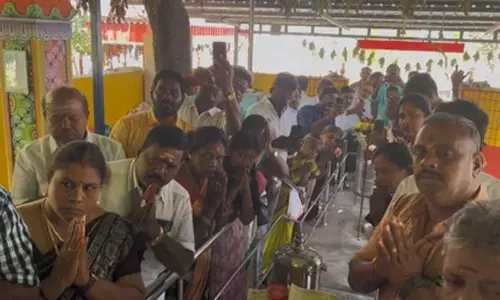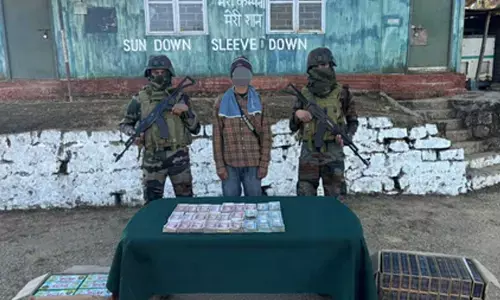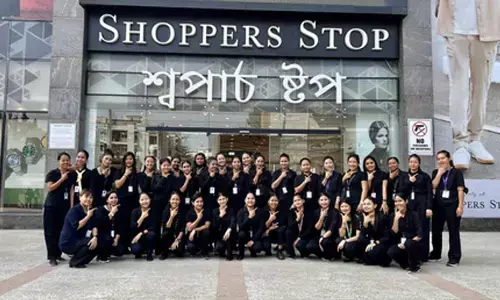Halt perpetual election circus
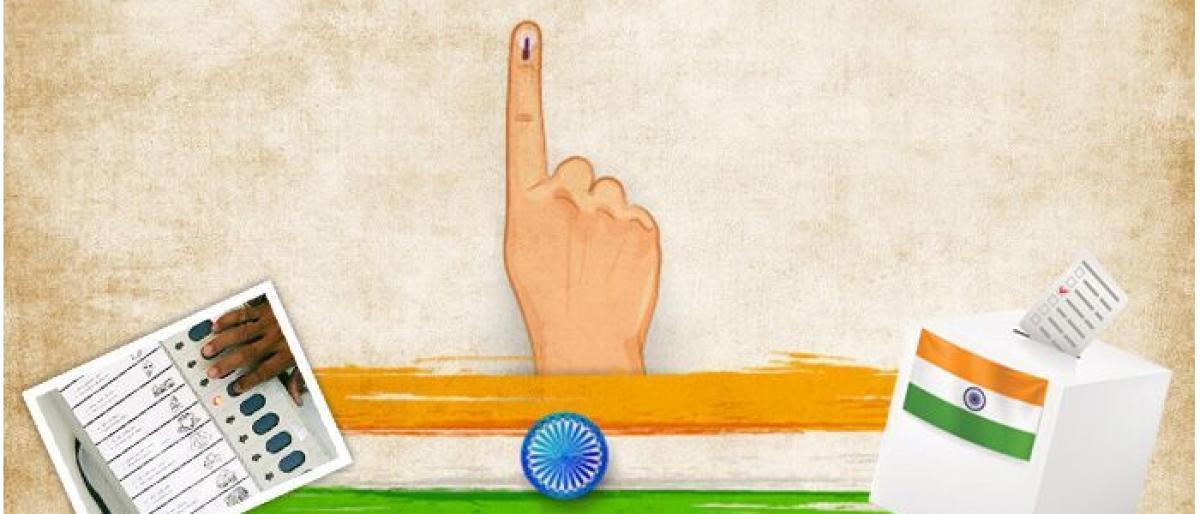
Winds of change are in the air. Is India readying for a reform in our election cycle? Dumping its Perpetual Election Syndrome which is wreaking havoc on our body politic as it meanders in an all-year merry-go-round. Instead, hooting for holding simultaneous elections to the Lok Sabha and State Assemblies. Seems so, with the Election Commission shoring up Modispeak by statingit could do soafter Sep
Winds of change are in the air. Is India readying for a reform in our election cycle? Dumping its Perpetual Election Syndrome which is wreaking havoc on our body politic as it meanders in an all-year merry-go-round. Instead, hooting for holding simultaneous elections to the Lok Sabha and State Assemblies. Seems so, with the Election Commission shoring up Modispeak by statingit could do soafter September next, though Parliament’s poll is due in 2019. A prime case of, ‘Your wish is my command’.
On the plea thatit would not only save time and money spent in electioneering but enable the Central and State Governments in taking hard decisions in public interest without having to worry about its impact on its vote banks and concentrate on delivering good governance.Due to electoral considerations several good initiatives and schemes are forsaken lest it upset a caste, community, religion or region. All becoming victims of policy paralysis, poor implementation and management.
Worse, political energy is diverted in injecting a heavy dose of vote-bank politics and power replete with the I-me-myself syndrome. Politicians of every colour, caste and creed have progressively allowed the malady to become chronic thereby gravely undermining governance. Even the semblance of administration is dispensed with. All in the vicious grip of Perpetual Election Syndrome (PES)with the devil taking the hindmost!
Questionably, is it an idea whose time has come? Can one hold simultaneous polls for Parliament and the State Legislatures? If so, would it be advisable in the best national interest?
Undoubtedly, it is one way to get rid of incompetence, malfeasance and casual governance. But it is an idea that needs to be debated extensively at all levels. Its pros and cons must be weighted before arriving at a final solution. Remember, the change advocated would entail changing the basic structure of the Constitution.
Not so, said ex Lok Sabha Secretary General Subash Kashyap, “No change in law or any Constitution amendment is required for simultaneous elections as Article 172 makes clear provisions for a fixed term of an Assembly.”
In fact, a Law Commission report in 1999 had said, “This cycle of elections every year, and in the out of season, should be put an end to and recommended a gradual move towards simultaneous elections once in five years.” Adding, when a no-confidence motion is moved against a government, a confidence motion should also be moved for an alternative government in the Assembly or the Lok Sabha as the case may be to ensure a five-year term for a majority or minority government.
This was dittoed by a parliamentary committee in December 2015. It held this would result in better deliverables of essential services and superior policies which come to a halt due to imposition of the Model Code of Conduct during election time along-with lessen the burden on crucial manpower deployed during election time.
Recall, the first four elections in 1952, 1957, 1962 and 1967 were a joint affair when simultaneous elections were held for the Centre and State legislatures. It was only in 1971 when Indira Gandhi dissolved the Lok Sabha and advanced elections by a year that the synchronisation fell apart. This saw the onset of many unstable governments at the Centre and States resulting in early dissolution of the Lok Sabha or Assemblies.
However, Constitutional experts believe it is not advisable to mix them. The proposal could be motivated by political considerations, as when simultaneous elections are held voters tend to vote for the same party. Also, poll issues at the Centre and States are quite different and it would, therefore be better to hold separate polls.
Two, holding simultaneous elections could create confusion for the voters. A party could be deserving of support at the Centre for its policies and performance at the national level. Yet, the same party could be deserving of popular punishment and defeat for its policies and performance at the state level.
Though simultaneous elections could be held for State Assemblies and they be given a fixed term. If an elected state government was to fall, the Centre could impose President’s rule till the time for a fresh poll. But the Lok Sabha cannot have a fixed term as there is no provision for President’s rule at the Centre. This could create more problems than solving them.
Further, a fixed term for the Lok Sabha and State Legislatures goes against the basic tenets of Parliamentary democracy. Yet the remedy is worse than the disease. A fixed term entails that if a government enjoying the people’s mandate is voted out, it shall continue to hold office or be replaced by another government, which may not necessarily enjoy the popular mandate.
Plainly, a government which lacks the confidence of House would be foisted on the people, with no say in the matter. Smacking of de facto dictatorship or monarchical anarchy, an idea which translates into unrepresentative governance.
Importantly, a major benefit of holding simultaneous polls is it would result in huge financial saving. Statistics say it all: In 1952, when the first national election for the Lok Sabha and Assemblies were held just over Rs 10 crores were spent. In the subsequent two elections 1957 and 1962 the expenditure came down to almost Rs 6 and Rs 7.5 crore respectively.
Since 1977, the expenditure saw an upward spiral. It doubled to over Rs 23 crore, in 1980, it further doubled to Rs 54 crore and 1989 to Rs 154 crore. Just two years later, the expenses shot up to Rs 359 crore and by 1999 it was Rs 880 crore. By 2004, it had shot up to Rs 1300 crore and 2014 Lok Sabha elections entailed an expenditure of Rs 4500 crore.
Today, confusion has got more confounded with various States completing their five-year terms at different times. The result? Elections costs have sky rocketed. The Bihar Government spent over Rs 400 crore for Assembly polls and UP more than double, the less said the better about expenses incurred by the Election Commission and Central Government. Just see the amount of the taxpayer’s hard money being spent over and over again mindlessly.
Think. In 2011 Kerala, Tamil Nadu, Assam, Puducherry and Bengal, 2012 UP, Goa, Punjab, Manipur and Uttarakhand, the following year Delhi, Chhattisgarh, Madhya Pradesh, Rajasthan and Mizoram followed by the Lok Sabha polls in 2014 and four States Maharashtra, Haryana, Telangana and Andhra Pradesh, in 2015 Delhi, Bihar, Jharkhand, J&K and last year Tamil Nadu, Kerala, Bengal and Assam.
Where do we go from here? The US model should be considered. The President and State Governors are elected directly for a fixed four-year term and they choose their own teams. Certainly, the President is answerable to the House of Representatives and Senate but he is not required to seek their confidence vote. This ensures good governance, stability and continuity enabling him to take hard decisions without fear of losing power.
In sum, elections are the bedrock of our democracy but we should avoid duplication of polls. With States going for elections every year, running the government is challenging as the country is in perpetual election mode. India’s democracy should not be reduced to a Great Indian Political Circus tu-tumein-mein between Parties all the time. Enough of the destructive PES!








